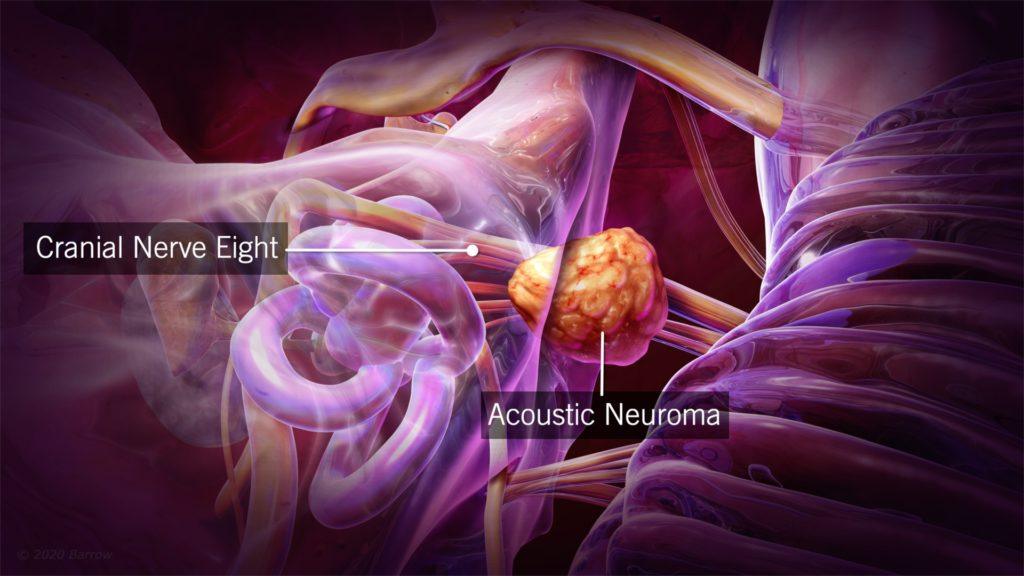
Acoustic Neuroma
Acoustic Neuroma Overview
An acoustic neuroma, also known as a vestibular schwannoma, is a benign (noncancerous) brain tumor that develops on the vestibulocochlear nerve, which carries sound and balance information from the inner ear to the brain.
Although an acoustic neuroma does not spread to other parts of the body and usually grows slowly, it can cause hearing and balance problems when it puts pressure on the vestibulocochlear nerve. This tumor can be life-threatening if it compresses nearby structures, such as the brainstem and cerebellum.


Acoustic Neuroma Symptoms
Symptoms of a vestibular schwannoma may include:
- Hearing loss in one ear
- Ringing in one ear
- Loss of balance
- Dizziness (vertigo)
- Facial numbness, weakness, or paralysis
These symptoms can be associated with other health problems. Diagnostic tests by a medical professional are needed for confirmation.
Acoustic Neuroma Treatment
Treatment for an acoustic neuroma depends on the growth of the tumor, your age, and your overall health. If you are not having symptoms and the tumor is growing slowly, your doctor may choose to monitor it over time with imaging and hearing tests. Radiation therapy or neurosurgery may be recommended to remove the tumor if it is large, causing symptoms, growing quickly, or pressing on your brain.
N
At Barrow Neurological Institute, we also offer CyberKnife and Gamma Knife radiosurgery. These noninvasive treatments use focused beams of radiation to destroy brain tumors while protecting the surrounding healthy tissue.
Additional Information
How common are acoustic neuromas?
Acoustic neuroma tumors are rare. Studies have shown that these tumors affect about two in every 100,000 people.
Who gets acoustic neuromas?
Most acoustic neuromas are diagnosed between the ages of 30 and 60.
What causes an acoustic neuroma?
Acoustic neuromas have been linked to a genetic disorder called neurofibromatosis type 2, but 95 percent of these tumors occur spontaneously without any evidence of family history.
How are acoustic neuromas diagnosed?
A vestibular schwannoma diagnosis can be difficult to detect early on because symptoms usually develop gradually and can resemble those of other middle and inner ear problems.
The following may be used to diagnose an acoustic neuroma tumor:
- Hearing tests
- Balance tests
- CT or MRI scans




